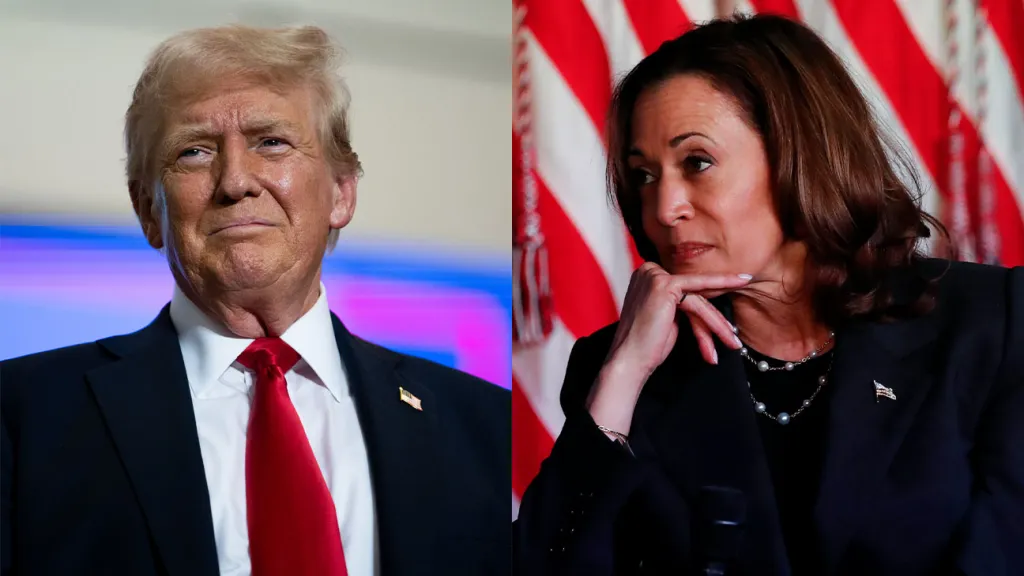What Time Do Polls Close in the US Election? A Look at Result Timelines

In November 2020, the United States witnessed a protracted electoral process when Joe Biden was declared the winner of the presidential election four days after polls closed. This delay stemmed from narrow margins in key battleground states, necessitating recounts, along with a significant number of mail-in ballots that needed to be tallied post-election day. Compounding these challenges was the context of a global pandemic, which complicated the voting and counting processes.
As the 2024 presidential election approaches, some states have adjusted their election laws in hopes of expediting the counting of votes. However, it is anticipated that a winner will not be known on election night itself.
Polling Hours and Expectations
On November 5, voting will commence at varying times across the nation. Most states will open polling stations at 7 AM local time, although some may begin as early as 5 AM or as late as 10 AM. In states like New Hampshire, Tennessee, and Washington, polling times are determined at the county or municipal level, leading to a range of opening hours.
The closing times for polls also vary significantly. In Indiana and Kentucky, for instance, polls will close as early as 6 PM Eastern Time (11 PM GMT). Conversely, Hawaii and Alaska, located on the western edge of the country, will keep polls open until midnight Eastern Time (5 AM GMT). Between 7 PM and 8 PM Eastern Time (midnight and 1 AM GMT), crucial indicators of candidate performance may emerge as polls close in battleground states like Georgia and North Carolina. Success in either of these states could shift momentum towards Kamala Harris.
The next pivotal moment will likely occur between 8 PM and 9 PM Eastern Time (1 AM and 2 AM GMT), when voting concludes in Michigan, Pennsylvania, and Wisconsin—three states critical to both campaigns. Nevertheless, immediate results from these states are unlikely. By 10 PM Eastern Time (3 AM GMT), polls will close in Arizona and Nevada, two other important swing states.
Vote Counting Challenges
Several factors could delay the announcement of results shortly after polls close. In Arizona, for instance, voters can drop off completed ballots at polling stations on election day or the day prior. However, these “late early” ballots cannot be processed until after the voting period ends.
Pennsylvania stands out as a particularly significant swing state, boasting 19 electoral votes—the highest among battleground states. The victor in Pennsylvania is likely to secure a commanding advantage in the Electoral College, which ultimately determines the presidency. However, due to state regulations, election officials in Pennsylvania are not permitted to begin processing mail-in ballots until 7 AM local time on election day. This rule could lead to a delay of more than 24 hours before results are reported.
Alauna Safarpour, an assistant professor at Gettysburg College, has expressed optimism that the wait will not be as prolonged as it was in 2020. She notes a potential decrease in the number of voters opting for mail-in ballots, a trend observed in the 2022 midterm elections.
Michigan and Nevada have implemented changes to their election processes since 2020, allowing for early processing of ballots. However, North Carolina has faced setbacks due to recent hurricane damage, complicating vote processing in that state. Additionally, the vote counting process in Milwaukee and Dane counties in Wisconsin may be slow, as these urban centers have a combined population of around 1.5 million, and their vote margins will significantly impact the state’s overall results.
Potential Delays in Results
Concerns exist about potential disruptions to the election results by various domestic actors, particularly in crucial swing states. In January 2021, many Republicans in Congress challenged the results in Pennsylvania and Arizona, both of which were won by Biden. In a troubling incident, individuals falsely representing themselves as members of the Electoral College attempted to declare Trump as the victor in several states, further muddying the official results.
Experts from the Brookings Institution have analyzed how similar scenarios could unfold in 2024. They highlight tactics that could sow confusion, such as refusing to certify election results at the county level. Notably, three election deniers on Georgia’s state election board have introduced rules allowing for the suspension of vote certification pending investigations into alleged irregularities.
While such attempts are expected to face resistance, they may still contribute to uncertainty and distrust in the electoral process. Given the high stakes and the tight race anticipated in the upcoming election, it is likely that the winner will not be determined for several days after the polls close.








